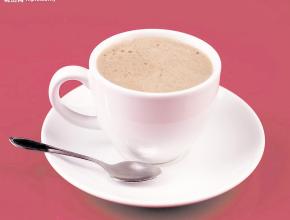Flavor description of Jamaican Coffee introduction to the taste of high-quality coffee beans
The real Blue Mountain Coffee is one of the most advantageous coffee growing conditions in the world. The weather, geological structure and topography of Jamaica provide a unique ideal place. The ridge across Jamaica extends to the eastern part of the island, with the Blue Mountains rising to more than 2100 meters. The cool weather, foggy weather and frequent rainfall reconcile the rich land of Rain Water. Here people use mixed planting to grow coffee trees next to banana and avocado trees on terraces.
Some small estates also grow Blue Mountain Coffee, such as Wallenford Estate, Silver Hill Estate and Atlanta Estate in J.Martinez. Even the largest landowners in the region are small-scale growers by international standards, many of whom are small landowners whose families have been working on the land for two centuries. The coffee industry in Jamaica faces a series of problems, such as the impact of hurricanes, the increase in labor costs and the difficulty of mechanizing terraces. It is difficult to rationalize planting on many small estates and farms
Only coffee grown in the Blue Mountain area above 1800 meters above sea level can be called Blue Mountain Coffee. A coffee enthusiast whom the reporter knew in the United States was more "demanding". He insisted: "the coffee grown at an altitude of 2256 meters is Blue Mountain coffee." Coffee beans grown in the lower mountains of the island of Jamaica can only be named "Jamaican alpine coffee" because of their different qualities. In addition, the same coffee tree species, whether planted in Hawaii, Kenya, Papua New Guinea or anywhere else with a similar climate, cannot produce the flavor of Blue Mountain Coffee beans. Blue Mountain Coffee can maintain its status as the best it is today. it is also inextricably linked to local business policies. In 1932, Jamaica adopted a policy to encourage coffee production to reduce the island's dependence on sugar exports. Unlike most coffee-producing countries, the local government does not plant a large number of high-quality and poor-quality coffee in order to increase output, but to give priority to quality, preferring to sacrifice the output of coffee to ensure the quality of Blue Mountain coffee. Therefore, Jamaica is currently one of the countries with low coffee production in the world. Brazil, the world's largest coffee exporter, produces 30 million bags of coffee every year, while Blue Mountain Coffee produces only about 40, 000 bags of pure Jamaican Blue Mountain Coffee every year, which perfectly combines the unique sour, bitter, sweet and mellow flavors of coffee and forms a strong and attractive elegance, which is unmatched by other coffee. People who love Blue Mountain Coffee say: "it is a 'coffee beauty' that combines all the advantages of good coffee." Jim, general manager of Pitt, which is famous for its coffee and tea business in the United States, said of Blue Mountain Coffee: "it tastes fragrant, smooth and mellow, and it makes me feel as precious as a gem. It is precisely because the taste of Blue Mountain Coffee is moderate and perfect, so Blue Mountain Coffee is generally drunk in the form of black coffee. The United States is a coffee-loving country, but the reporter did not find any trace of "coffee beauty" in several major supermarket chains and Starbucks coffee shops in Houston. According to a waiter at a Starbucks coffee shop in downtown Houston, their coffee is mainly made from beans from Africa, Colombia or Indonesia. Blue Mountain Coffee is less on the market, and 90% of Blue Mountain Coffee is owned by the Japanese. At present, the "Blue Mountain style" coffee seen on the market does not contain a positive blue mountain coffee bean. One kind of "Jamaican mixed Blue Mountain" coffee is a mixture of 30% Blue Mountain Coffee and 70% of the best Jamaican Alpine Coffee. The above two kinds of coffee tried to imitate the taste of Blue Mountain Coffee, but could not reach the perfect level.

Important Notice :
前街咖啡 FrontStreet Coffee has moved to new addredd:
FrontStreet Coffee Address: 315,Donghua East Road,GuangZhou
Tel:020 38364473
- Prev

Description of Panamanian Kasha Coffee Flavor introduction to the taste of boutique coffee beans
The cooked beans that have been baked will appear to have some wrinkles, and the sexy wrinkled beans are all to highlight their original taste and fruit acidity, but if the quality of the raw beans is not high, they will produce some miscellaneous flavors, such as rotten soil, grass and dry taste, which bakers should try to avoid. Baked Rosa has charming lemon and citrus aromas and super sweet honey cream roses.
- Next

Introduction to the treatment methods of roasting degree of high-quality coffee beans in Ethiopian coffee producing areas
Coffee is Ethiopia's most important export cash crop and the main source of Ethiopia's foreign exchange earnings. Ethiopia's coffee exports account for about 3% of the world market, making it the eighth largest coffee exporter in the world. Coffee exports increased steadily from 58000 tons in 1990 to 110000 tons in 1995-1996 and remained at this level in the following years. 2001-2002
Related
- Detailed explanation of Jadeite planting Land in Panamanian Jadeite Manor introduction to the grading system of Jadeite competitive bidding, Red bid, Green bid and Rose Summer
- Story of Coffee planting in Brenka region of Costa Rica Stonehenge Manor anaerobic heavy honey treatment of flavor mouth
- What's on the barrel of Blue Mountain Coffee beans?
- Can American coffee also pull flowers? How to use hot American style to pull out a good-looking pattern?
- Can you make a cold extract with coffee beans? What is the right proportion for cold-extracted coffee formula?
- Indonesian PWN Gold Mandrine Coffee Origin Features Flavor How to Chong? Mandolin coffee is American.
- A brief introduction to the flavor characteristics of Brazilian yellow bourbon coffee beans
- What is the effect of different water quality on the flavor of cold-extracted coffee? What kind of water is best for brewing coffee?
- Why do you think of Rose Summer whenever you mention Panamanian coffee?
- Introduction to the characteristics of authentic blue mountain coffee bean producing areas? What is the CIB Coffee Authority in Jamaica?

